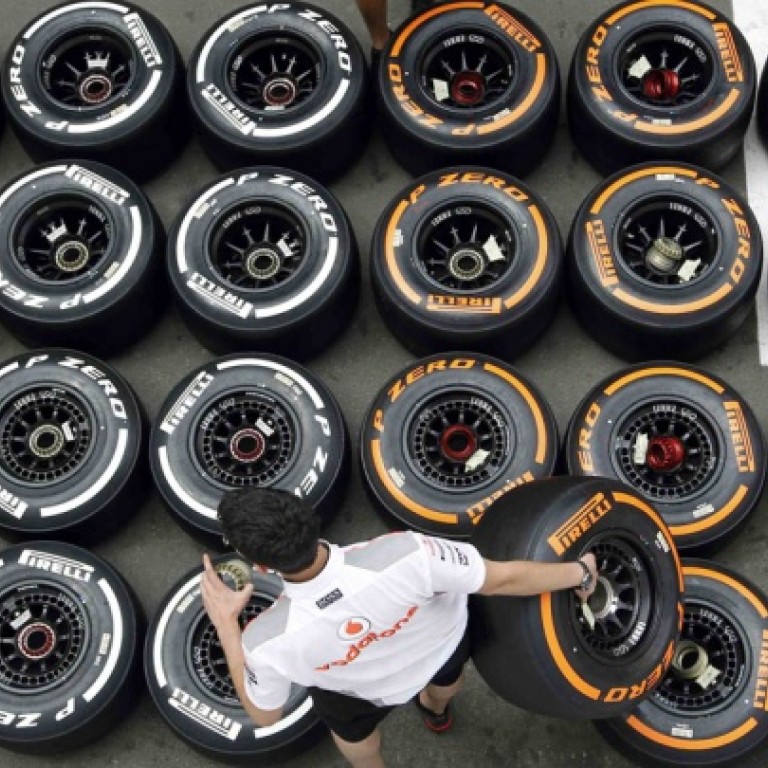
Fragile Pirelli tyres take out need for speed at F1 races
The Spanish Grand Prix was a farce as the use of Pirelli tyres saw drivers and fans bewildered by the snail's pace
The Monaco Grand Prix has many things that make it stand out in the Formula One calendar. The stunning, lavish surroundings; the ostentatiousness and inflated egos (even by F1 standards) and the ridiculously large yachts with more technology than the average aircraft carrier.
What does not make it special is the quality of the racing on a tight street circuit. But this year that does not seem to be a pre-requisite. Just look to the awful race that passed for the Spanish Grand Prix.
Pirelli had been asked to make fragile tyres to spice up the racing, and they duly obliged
It was not really a race because the drivers were not going as fast as they could. It made for an odd spectacle, and a slightly deflating one at that. F1 cars by their nature do not coast, but to see the fastest cars on the planet doing lap times no better than the GP2 warm up series was depressing in the extreme.
The reason, of course, is the tyres. Pirelli had been asked to make fragile tyres to spice up the racing, and they duly obliged. Some 82 pit stops in less than 100 minutes of racing in Spain suggests they have taken it too far. Many teams were forced to pit their cars four times in the race, and fans were left totally bewildered as to what was happening on the track.
Like a good novel, a race should have a narrative. We should know who is able to challenge for the lead, who is fighting whom up and down the order. For that matter, qualifying on pole on Saturday should give some indication of a car's ability to challenge for a podium finish.
You have to feel for the Mercedes drivers, who qualified one and two, and then went backwards in the race as they tried to preserve their tyres. Lewis Hamilton started second and finished 12th. In the process he was constantly reminded by his team to conserve rubber. "I can't drive any slower" was his comical response.
Most of the radio traffic between the pit wall and the drivers seemed to be telling those at the wheel to take it easy.
Jenson Button eloquently described the feeling in the drivers union; "this is the pinnacle of motor sport. We shouldn't be driving around as slowly as we have to so that we can look after the tyres".
"It's very confusing"' he told the media. "The whole time the engineer is on the radio saying the temperatures are too high, too low, you have to go quicker in this corner, you have to go slower in this corner to look after the tyres".
Paul Di Resta had a good race for Force India, finishing in seventh, but even he was forced on to the radio to ask his engineers "can anybody tell me what's going on".
Of course, those that did well seemed to mind less than those that struggled.
Ferrari managed a double podium, as always making the most of what they had at their disposal. Lotus and Kimi Raikkonen also seemed a bit lighter on the black stuff.
However, Red Bull are fuming. The team owner, Dietrich Mateschitz says the state of Formula One is "nothing to do with racing anymore". He also feels that qualifying is a farce because teams are concentrating on saving rubber for the race. Several other teams will no doubt stand shoulder to shoulder with him on this.
Ferrari will not be one of them. It has ridiculed those moaning about the current conditions, saying they have poor memories. It points out that Red Bull have won races before on four-stop strategies.
The argument is probably more entertaining than Spain's race, but the moaning has had an effect. Pirelli has announced it will be changing its tyres from the Canadian Grand Prix onwards and hopefully we will see some more meaningful racing. However, this weekend's race in Monaco will be run on the old rubber.
It will be intriguing to see how the race pans out. Who would bet against Mercedes taking pole position again, and then backing up the whole field as their tyres go off in the race. Perhaps the other teams - given the nature of Monaco and the lack of overtaking opportunities - might take qualifying more seriously.
What we can guarantee is a lot of frustrated drivers, confused spectators and uncertainty over the race winner until the fog of pit stops has lifted somewhere towards the end of proceedings.

